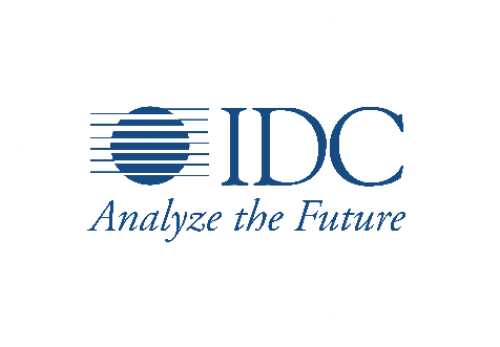Worldwide Spending on Cognitive and Artificial Intelligence Systems to Hit $19.1 Billion in 2018, IDC Says
Worldwide spending on cognitive and artificial intelligence (AI) systems will reach $19.1 billion in 2018, an increase of 54.2 percent over the amount spent in 2017, International Data Corp. says. With industries investing aggressively in projects that utilize cognitive/AI software capabilities, IDC’s Worldwide Semiannual Cognitive Artificial Intelligence Systems Spending Guide forecasts cognitive and AI spending will grow to $52.2 billion in 2021 and achieve a compound annual growth rate (CAGR) of 46.2 percent over the 2016-2021 forecast period.
"Interest and awareness of AI is at a fever pitch,” says David Schubmehl, research director, Cognitive/Artificial Intelligence Systems at IDC. “Every industry and every organization should be evaluating AI to see how it will affect their business processes and go-to-market efficiencies.”
IDC estimates that by 2019, 40 percent of digital transformation initiatives will use AI services and by 2021, 75 percent of enterprise applications will use AI. “From predictions, recommendations, and advice to automated customer service agents and intelligent process automation, AI is changing the face of how we interact with computer systems," Schubmehl says.
Retail will overtake banking in 2018 to become the industry leader in terms of cognitive/AI spending. Retail firms will invest $3.4 billion this year on a range of AI use cases, including automated customer service agents, expert shopping advisors and product recommendations, and merchandising for omni channel operations. Much of the $3.3 billion spent by the banking industry will go toward automated threat intelligence and prevention systems, fraud analysis and investigation, and program advisors and recommendation systems.
Discrete manufacturing will be the third largest industry for AI spending with $2.0 billion going toward a range of use cases including automated preventative maintenance and quality management investigation and recommendation systems. The fourth largest industry, healthcare providers, will allocate most of its $1.7 billion investment to diagnosis and treatment systems.
"Enterprise digital transformation strategies are increasingly including multiple cognitive/artificial intelligence use cases," said Marianne Daquila, research manager, Customer Insights & Analysis at IDC. "Business transformation is occurring across all industries as successful companies embrace the array and potential impact of these solutions. Automated customer service agents, increased public safety, preventative maintenance, reduction of fraud, and improved healthcare diagnosis are just the tip of the iceberg driving spend today. With double-digit year-over-year spending growth forecast, IDC expects to see an increase in general use cases, as well as a refinement of industry-specific use cases."
The cognitive/AI use cases that will see the largest spending totals in 2018 are: automated customer service agents ($2.4 billion) with significant investments from the retail and telecommunications industries; automated threat intelligence and prevention systems ($1.5 billion) with the banking, utilities, and telecommunications industries as the leading industries; and sales process recommendation and automation ($1.45 billion) spending led by the retail and media industries.
Three other use cases will be close behind in terms of global spending in 2018: automated preventive maintenance; diagnosis and treatment systems; and fraud analysis and investigation. The use cases that will see the fastest spending growth over the 2016-2021 forecast period are: public safety and emergency response (75.4 percent CAGR), pharmaceutical research and discovery (70.5 percent CAGR), and expert shopping advisors and product recommendations (67.3 percent CAGR).
(For more information visit https://www.idc.com).


